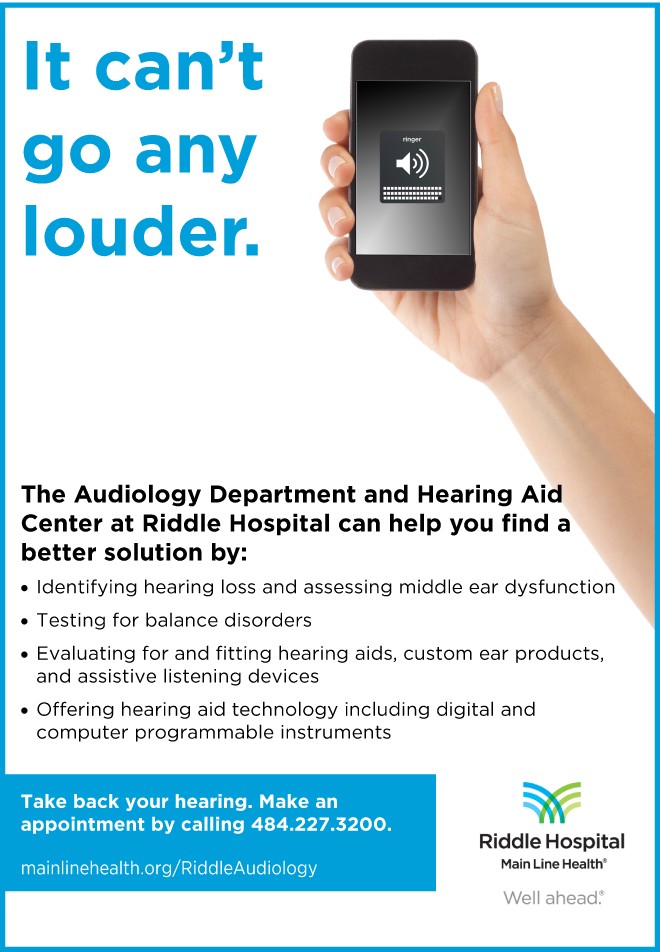The Way to Better Hearing

By Jessica M. Bell, AuD
Doctor of Audiology
Listening with a hearing loss can be challenging, tiring, and frustrating. So much so that some people may even “tune out” of important conversations. It is important to realize that even with the best hearing devices, communication can still be a challenge in a variety of environments. In order to communicate effectively with our loved ones, good communication strategies are essential. Here are several effective strategies which enhance communication with, or without, the use of hearing technology.
Attention!
Hearing takes concentration, especially for those with hearing loss. Gaining the listeners attention and allowing them to focus on you before beginning a conversation will ensure they are fully prepared to listen to what you have to say. A simple task such as addressing the person by name or making eye contact is a great start to a successful conversation.
Provide Context
Providing context allows the listener to focus on the intended topic and will decrease the “guessing game” of what is being said to them. Think of “Wheel of Fortune” as an example. The players guess letters based on a known category. The players are more likely to solve the puzzle if they can narrow their scope to “animals” or “places” instead of an open ended topic. This is similar for folks with hearing loss as they may not hear all of the letters in every word. Therefore, they may need to fill in the blanks accordingly. Having context of the conversation will allow for them to make the best assumption for certain words they may not have heard clearly originally.
Look At Each Other
In most situations, it is important for the listener to see the lips of the speaker. Lip reading (or speech reading) is a common practice among those with hearing loss. Providing speech reading cues, along with contextual cues, increases the ability to gain the full picture of what is being said. Well lit areas are best in order to utilize speech reading compensation strategies. Long story short, speaking from a different room should be considered out of the question!
Location! Location! Location!
Where conversation takes place is just as important as how it takes place! When possible, avoid situations where high background noise is present. Fans, wind, and other extraneous noises can also complicate the listening situation. Although hearing technology has come a long way, the most benefit will be gained in a quiet, well lit location.
Speak Slowly, Speak Clearly
Rapid, muffled speech can lead to a discouraging conversation. When communicating, use slow, clear speech. There is no need to shout or over exaggerate lip movements. If there are multiple people in the conversation take turns speaking and make sure to follow the other strategies previously discussed!
Attitude
Whether you’re the speaker or the listener, it is important to continue to have a positive attitude. It is understandable that communicating with a hearing loss can be frustrating at times; however, the goal of any conversation is to be able to communicate successfully with each other. Using good communication strategies, in addition to your well fit hearing technology, is bound to improve your level of communication!
The Riddle Experience
The audiologists at Riddle Hospital share the same goals that you do – to improve hearing and understanding even in your most difficult listening environments. A comprehensive audiological evaluation followed by a listening needs assessment and live hearing aid demonstration will allow the audiologist to make the best recommendations for a hearing treatment plan tailored to your listening needs.
For more information or to schedule an evaluation or treatment, contact the Audiology Department at Riddle Hospital.
Catherine M. Marino, Au.D., Doctor of Audiology/Director
Jessica M. Bell, Au.D., Doctor of Audiology
Denise E. Stewart, M.S., Clinical Audiologist
Lisa C. Mackenzie, M.S., Clinical Audiologist
RIDDLE HOSPITAL
Audiology & Hearing Aid Center
1118 West Baltimore Pike Suite 207
Media, PA 19063
(484) 227-3200-phone (484) 227-3265-fax
mainlinehealth.org/RiddleAudiology


